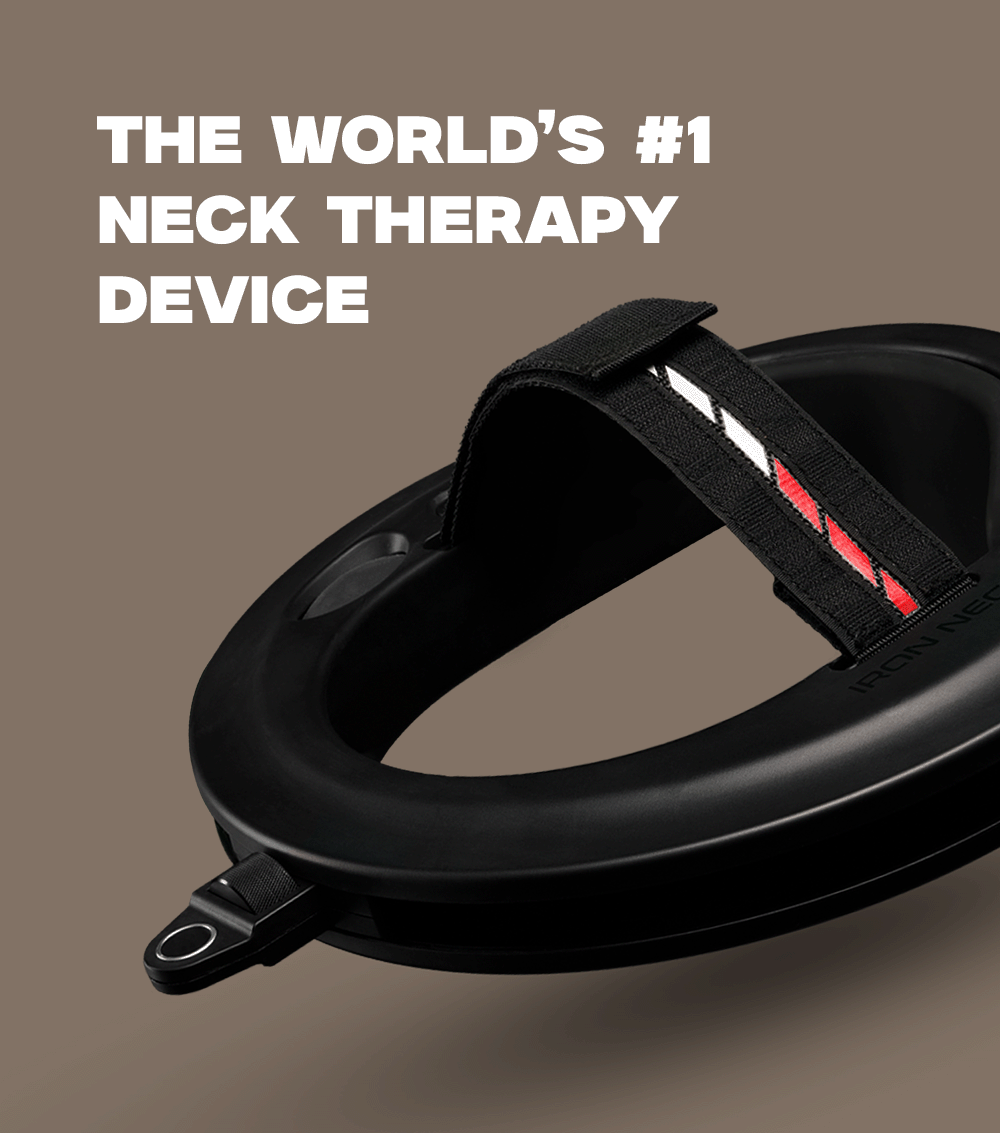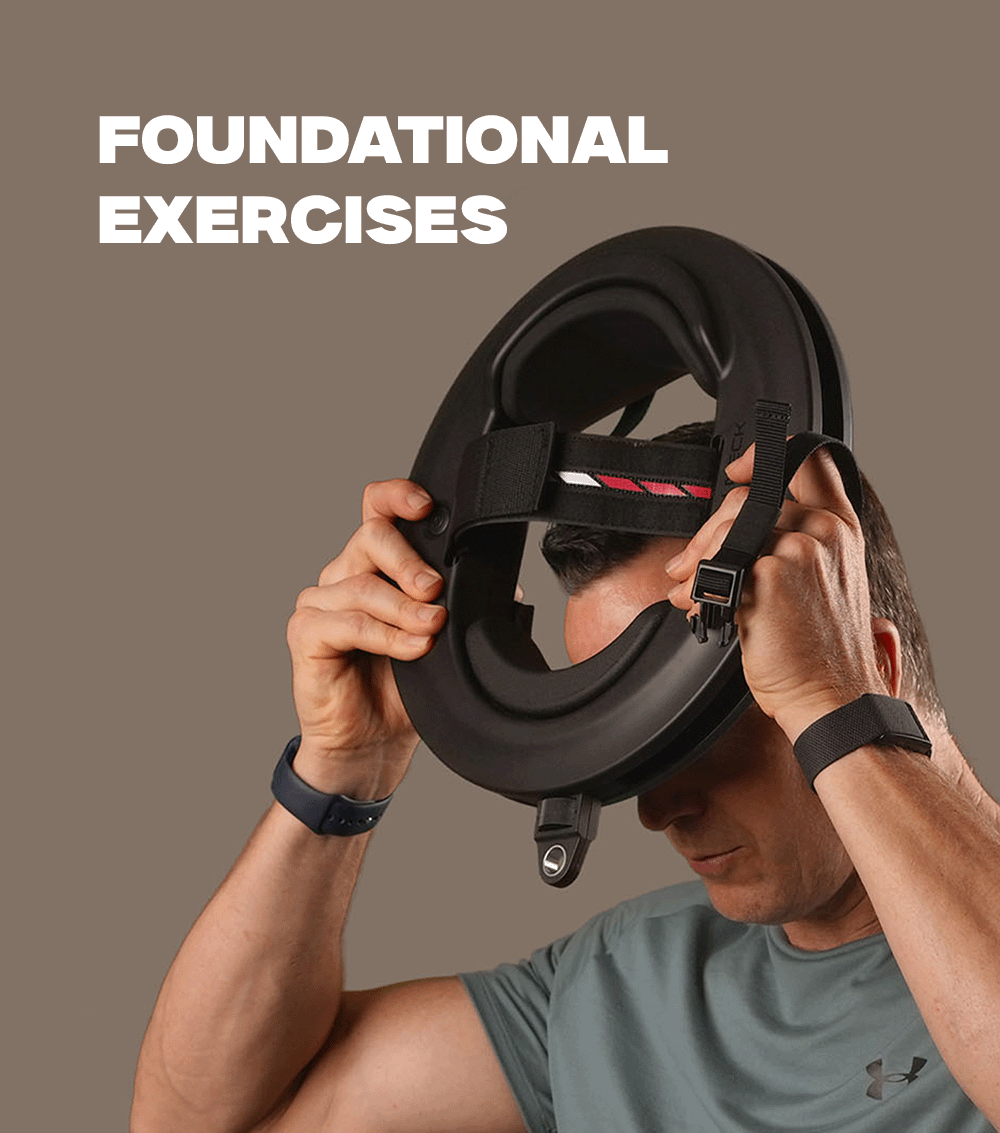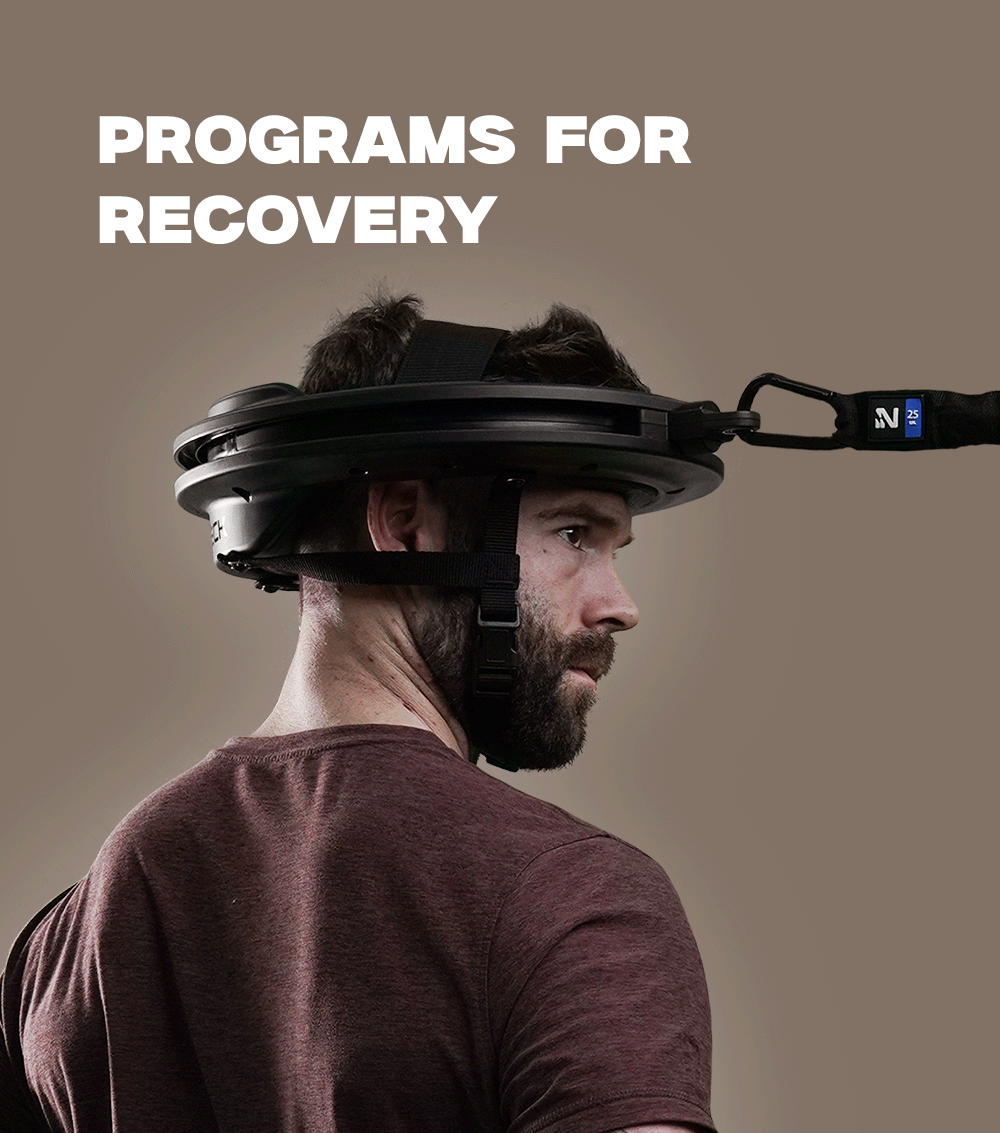That popping sound when you move your neck often brings quick relief. After a long Zoom call or a tough workout, many people instinctively crack their necks to ease stiffness. But is it bad to crack your neck every day?
Occasional cracking is usually harmless, much like cracking your knuckles. But when it turns into a frequent or forceful habit, it can strain the delicate structures that keep your neck stable. Over time, that may lead to irritation, stiffness, or even injury. To understand the real risks, it helps to first look at what’s actually happening when your neck makes that familiar pop.
What Happens When You Crack Your Neck?
When you tilt or twist your head and hear a crack, it’s not your bones grinding together. The sound usually comes from cavitation, a change in joint pressure that causes tiny gas bubbles in the synovial fluid (the lubricant inside your joints) to form and collapse. This is the same process that makes your knuckles pop[6].
In some cases, the noise may also come from tendons or ligaments snapping lightly over the bony surfaces of the neck. Either way, it’s a temporary release of pressure, not a sign that your bones are being “reset”[6].
The sensation often brings relief, muscles may relax, tension eases, and your neck feels looser. That’s part of why the habit is so common. But the comfort is temporary, and repeating the motion too often can have downsides, which we’ll cover next.
Why Do People Crack Their Neck?
For most people, neck cracking is not random, it’s usually triggered by how the neck feels at the moment. The most common reasons include:
-
Relieving stiffness: Long hours at a desk, looking down at a phone, or sleeping in an awkward position can make the neck feel tight. A quick crack often feels like it restores mobility.
-
Releasing tension: Stress naturally builds up in the neck and shoulders. Cracking provides a short burst of relief that makes the muscles feel looser.
-
Habit: For some, it’s simply a routine action, much like biting nails or tapping fingers. The sound and sensation become linked with comfort.
- Psychological satisfaction : That sharp pop creates a sense of release, which can be mentally reassuring even if nothing significant changes physically.
While these reasons explain why people crack their neck, it doesn’t mean the habit is always healthy. The temporary relief can make you want to repeat the motion, which is where risks can start to build up over time.
Risks and Warning Signs of Neck Cracking

Cracking your neck once in a while isn’t likely to cause harm. The concern comes when the habit becomes frequent, forceful, or compulsive. Over time, this can place extra stress on the cervical spine the part of your spine that supports your head and lead to [2, 4]:
-
Joint instability from overstretched ligaments.
-
Muscle strain caused by sudden or repeated twisting.
-
Pinched nerves, which may result in tingling, weakness, or numbness in the arms.
- Blood vessel damage (rare but serious), where forceful cracking has been linked to vertebral artery injury and an increased risk of stroke.
Certain groups like people with arthritis, a history of neck injuries, or naturally loose joints, face higher risks. If arthritis is a concern, adding safe, low-impact routines such as neck arthritis exercises can help improve mobility and reduce stiffness and pain without the risks of frequent self-cracking.
You should also treat neck cracking as a red flag if you notice:
-
Persistent pain or stiffness that doesn’t go away.
-
Tingling, numbness, or weakness in your arms or hands.
-
Cracking after trauma, such as whiplash, a fall, or a sports injury.
- New changes in mobility, like grinding sensations or sudden limits in movement.
- If any of these warning signs show up, it’s best to pause self-cracking and seek medical guidance. Depending on your symptoms, you may need to see an orthopedic doctor, neurologist, chiropractor, or physical therapist to rule out deeper issues and find safer solutions [2, 3].
Safe Alternatives to Neck Cracking
If you feel the urge to crack your neck, there are safer and more effective ways to find relief. Instead of forcefully twisting your neck, try these evidence-based methods that restore mobility, release tension, and strengthen support structures.
1. Gentle Mobility Work

Work only in a comfortable mid-range; move slowly; avoid breath-holding. Stop immediately if you notice dizziness, visual change, numbness, tingling, weakness, unsteadiness, or electric-like facial pain. Do not perform ballistic or high-velocity neck movements.
Controlled neck movements help lubricate your joints and ease stiffness without overstretching ligaments. Simple exercises include:
-
Chin tucks: Draw your chin straight back, keeping your eyes level. This activates deep stabilizers that support posture.
- Side bends: lean slightly toward your shoulder within a comfortable mid-range and return to centre; do not hold at end-range.
-
Neck rotations: Turn your head gently left and right, staying within a comfortable range. Do not hold at end-range
These movements improve blood flow, restore motion, and provide the same sense of relief people often seek through cracking.
2. Heat Therapy

Heat relaxes tight muscles and improves circulation. Instead of twisting your neck for a quick pop, try:
-
A warm shower directed at your neck and shoulders.
-
A microwavable heat wrap during desk breaks.
-
A heated massage cushion for combined pressure and warmth.
- By loosening stiff muscles, heat makes movement smoother and more comfortable.
3. Strength Training

Weak neck and upper-back muscles are often the root cause of stiffness. Building strength improves joint stability and reduces the need to self-adjust.
-
Resistance bands can be used for isometric holds, side bends, and rotations.
- The Iron Neck provides 360-degree strengthening to target all the muscles that stabilize your cervical spine.
When your muscles are strong and balanced, the urge to crack your neck often disappears.
Check out our article on weak neck muscles exercises for safe strengthening routines.
4. Posture Resets

Most people crack their necks out of habit when they’ve been sitting too long. Instead, make posture resets part of your daily routine:
-
Every 30–60 minutes, stand up, roll your shoulders back, and gently align your head over your spine.
-
Adjust your workstation so your monitor is eye level and your shoulders stay relaxed.
- Use a lumbar support cushion to keep your spine upright, which reduces forward-head posture.
These micro-adjustments reduce stiffness before it builds up.
5. Breathing and Relaxation

Neck tension often comes from stress and shallow breathing. Practicing diaphragmatic breathing or short stretching breaks can help:
-
Inhale deeply through your nose, expanding your belly.
-
Exhale slowly while relaxing your shoulders down.
- Pair this with light stretching for double the benefit.
How to Prevent the Urge to Crack Your Neck
Instead of relying on cracking for quick relief, focusing on long-term habits can keep your neck feeling stable and comfortable:
-
Strengthen supporting muscles: Simple exercises for the neck, shoulders, and upper back improve stability and reduce stiffness.
-
Move throughout the day: Take short breaks to stretch or change positions if you sit for long periods. Even a quick walk can help loosen tight muscles [1, 2].
- Mind your posture: Keep your head aligned over your shoulders, avoid slouching, and set up your desk or workspace to support good ergonomics.
For a deeper breakdown of posture correction techniques, check out this article on how to fix bad neck posture
-
Manage stress: Stress often shows up as tightness in the neck and shoulders. Breathing exercises, yoga, or mindfulness can help release that tension.
- Stay consistent: A regular routine of mobility and strength work prevents stiffness from building up in the first place.
By addressing posture, muscle balance, and stress, you’ll reduce the constant urge to crack your neck and build a foundation for healthier movement.
How Iron Neck Helps You Build Lasting Neck Health
Rather than waiting for tension to build and relying on cracking for relief, you can train your neck the same way you train the rest of your body with structured exercises that improve strength, mobility, and resilience [1].
This doesn’t just help prevent the “urge” to crack your neck. It also:
- Improves posture.
- Reduces the risk of injury during sports or daily activities.
- Supports recovery from past neck pain or strain.
- Keeps you moving comfortably for years to come.
- Protecting Your Neck for the Long Term
Cracking your neck might feel good for a few seconds, but it’s not a long-term fix. Occasional, gentle cracking is fine. Frequent or forceful movements can increase the risk of instability, strain, and injury.
Instead of chasing temporary relief, focus on building lasting neck health:
- Keep your posture in check.
- Move your neck regularly with gentle stretches.
- Strengthen the muscles that support your cervical spine.
If discomfort persists or you experience pain, dizziness, or neurological symptoms, skip the self-adjustments and get checked out.
Your neck plays a vital role in everything from daily movement to athletic performance. Protect it now, and it will keep you moving strong for the long haul. And if you’re ready to stop relying on neck cracking and start building real stability, the Iron Neck system is here to help you do it [1, 5]..
Frequently Asked Questions About Neck Cracking
Why does cracking my neck feel so good?
That satisfying feeling often comes from the release of pressure in your joints and the endorphins your body produces during the movement. These natural “feel-good” chemicals can create a sense of relief, but the effect is temporary. If you find yourself craving that relief often, it may be a sign that your neck needs more mobility and strength training.
Can you get arthritis from cracking your neck?
No. Medical research shows that cracking your neck does not cause arthritis. Arthritis is linked to factors like age, genetics, past injuries, and wear-and-tear on joints. However, frequent or forceful neck cracking can irritate tissues and contribute to stiffness or instability, which may worsen discomfort if arthritis is already present.
Is it safe to let a chiropractor crack my neck?
When performed by a licensed, trained chiropractor, neck adjustments can be safe and effective for certain conditions. However, not everyone is a candidate. If you have a history of neck injuries, arthritis, or vascular problems, consult your doctor first. Avoid high-velocity neck manipulation if you have dizziness, visual change, focal neurological symptoms, or suspected vascular problems, and discuss risks and alternatives with your clinician
Why does my neck crack so easily?
Some people naturally have looser ligaments or more flexible joints, which makes cracking noises more common. Poor posture, long hours sitting, or stress-related muscle tension can also make the neck feel tight and more prone to popping.
References:
- Blanpied PR, Gross AR, Elliott JM, et al. Neck pain: clinical practice guidelines—revision 2017. J Orthop Sports Phys Ther. 2017;47(7):A1-A83.
- Childress MA, Stuek SJ. Neck pain: initial evaluation and management. Am Fam Physician. 2020;102(3):150-156.
- Jadhav AP, Yaghi S, Engelter S, et al. Treatment and outcomes of cervical artery dissection in adults: AHA/ASA Scientific Statement. Stroke. 2024;55:e91-e106.
- Biller J, Sacco RL, Albuquerque FC, et al. Cervical arterial dissections and association with cervical manipulative therapy: AHA/ASA Scientific Statement. Stroke. 2014;45:3155-3174.
- Garrett JM, Kerr ZY, Parr MS, et al. The relationship between neck strength and sports-related concussion: systematic review with meta-analysis. J Orthop Sports Phys Ther. 2023;53(10):585-593.
- Kawchuk GN, Fryer J, Jaremko JL, et al. Real-time visualisation of joint cavitation in the metacarpophalangeal joint. PLoS One. 2015;10(4):e0119470.
- American College of Sports Medicine. Position stand: progression models in resistance training for healthy adults. Med Sci Sports Exerc. 2009;41(3):687-708.
Disclaimer: The Iron Neck blog provides educational content on neck training, fitness, and recovery. It’s not a substitute for medical advice, please consult a healthcare professional before starting any new exercise or recovery program.









Leave a comment
This site is protected by hCaptcha and the hCaptcha Privacy Policy and Terms of Service apply.